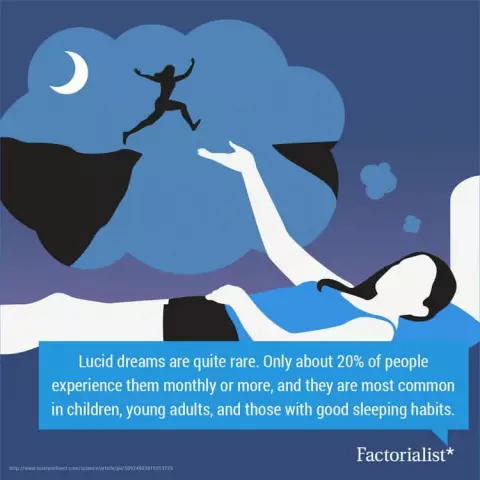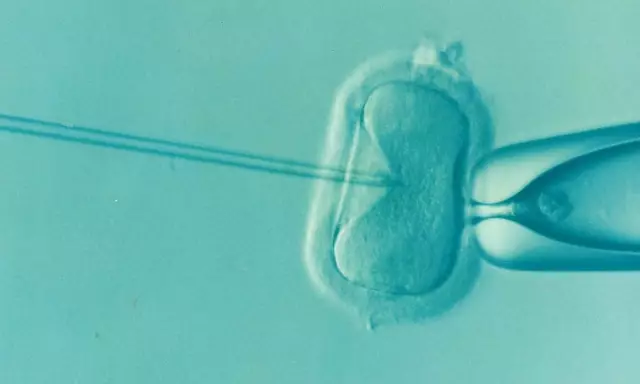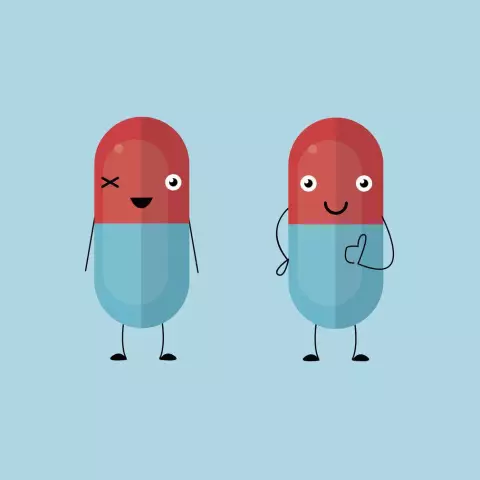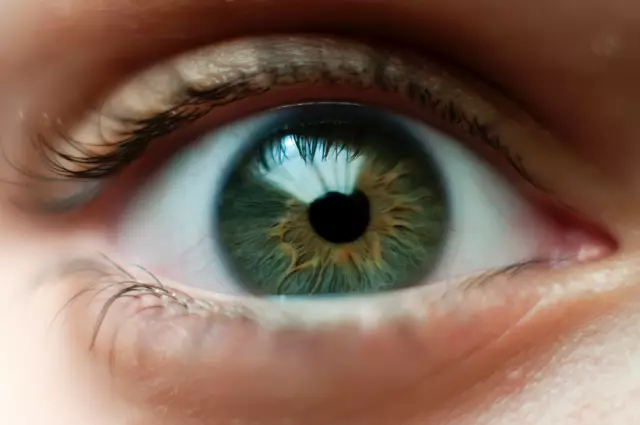- Author Rachel Wainwright wainwright@abchealthonline.com.
- Public 2023-12-15 07:39.
- Last modified 2025-11-02 20:14.
8 interesting facts about testosterone
Testosterone is a male sex hormone, an androgen, the main amount of which is produced by special cells located in the seminal glands. It plays an important role in the growth of the musculoskeletal system, development and functioning of the male reproductive system. During adulthood, he is responsible for the formation of secondary sexual characteristics in boys. The female body also produces a small amount of testosterone, which is necessary to maintain optimal hormonal levels. We bring to the attention of readers interesting facts about the effect of this substance on the vital activity of the body and some aspects of human life.

Source: depositphotos.com
Testosterone and libido
For a long time, testosterone levels were considered almost the only factor determining male sexuality. Modern scientists are not so categorical. Numerous studies have shown that libido depends on a whole range of factors, including health status, exposure to stress, the presence of bad habits and psychological problems, nutrition, social fulfillment, and even a man's degree of passion for the content of adult publications. Together, they affect sexual performance much more intensely than testosterone levels in the blood.
Effects of testosterone on behavior
Testosterone is considered a substance that increases the aggressiveness of a person. For men, this is true: the higher the level of the hormone in the blood, the more the representative of the stronger sex is prone to conflicts, asserting his own superiority and even violent actions in relation to other people. With women, the situation is exactly the opposite: a bad mood and a desire to participate in real conflicts in them is provoked not by an excess of the hormone, but by its lack.
The propensity to take risks in men is practically unrelated to the concentration of testosterone in the blood. But an excess of this substance turns women into notorious adventurers.
Testosterone deficiency in men makes them more accommodating, obedient, and emotionally stable. However, too low a level of the hormone in the blood leads to an increase in such qualities as cunning, resourcefulness and stinginess. These conclusions were made by scientists who studied the history of the participation of eunuchs in the political and social life of some states (for example, China and Korea). It turned out that for several centuries eunuchs played a leading role in the courts of the rulers of these countries. The penchant for intrigue allowed them to be indispensable advisers, and the passion for hoarding - very wealthy people.
Testosterone and longevity
Having studied the ancient court chronicles, Korean historians concluded that eunuchs lived significantly longer than their peers, who had normal testosterone levels.
Modern research confirms this statement: according to statistics, men who, for some reason, are deficient in the hormone, outlive their peers by an average of 14 years.
Age-related changes in testosterone levels
Contrary to popular belief, a man's blood testosterone levels are not directly related to age. Healthy people do not suffer from its deficiency, even being in very respectable years. A decrease in testosterone production is associated not so much with aging of the body as with the development of chronic diseases. Diabetes mellitus and obesity, as well as pathologies of the cardiovascular system, are especially noticeable.
Effect of testosterone on the senses and appearance
Studies have disproved the claim that high testosterone levels contribute to early hair loss. Scientists have found that alopecia in most cases is hereditary: the earlier appearance of baldness is associated with the presence of a gene that, to some extent, determines the intensity of testosterone production by the body. So a high level of the hormone does not contribute to the loss of hair, but is parallel to it. Sometimes alopecia occurs against the background of illness, due to stress, diets, or due to taking certain medications. In these cases, there is no connection with the level of male hormones either.
The amount of testosterone in the blood also affects the function of the senses. An interesting study was carried out by Japanese scientists. They found that with a slight decrease in the concentration of the hormone, the sensitivity of the taste buds located on the tongue increases. This explains the fact that ethnic Japanese are considered the best tasters in the world: their testosterone level, as a rule, is slightly lower than that of other peoples.
Testosterone and paternity
Testosterone regulates the male reproductive system, and its intense production contributes to successful conception. However, this does not mean that men with high levels of this hormone automatically become good fathers.
Numerous studies have shown the exact opposite: the more testosterone a man's body produces, the more indifferent he is to his own offspring. Scientists claim that representatives of the stronger sex with a slightly lower level of the male hormone spend more time with children and take better care of them, react more calmly to the pranks of babies, and contact them more adequately.

Source: depositphotos.com
Testosterone and marriage
A study of testosterone levels in married and single men has shown that family ties to some extent contribute to the decrease in hormone production. In addition, it turned out that polygamy also affects the amount of testosterone: in men with several wives, the concentration of the hormone in the blood was, on average, less than that of their peers in monogamous marriages.
Using testosterone as a medicine
Taking testosterone orally is indicated for severe hormonal disorders (including congenital) and some cancers. Only a doctor can prescribe such medications.
Some athletes take testosterone by mouth to accelerate muscle gain. This is not only unsafe (long-term use of such drugs reduces the body's production of its own hormones and causes health problems), but also illegal. Medicines containing testosterone are included in the list of substances banned by world and national sports organizations (WADA, etc.). In Russia, the sale and use of such hormonal drugs is regulated by federal laws, the violation of which entails criminal liability.
Topical testosterone therapy has become extremely popular in the United States and some European countries in recent years. Manufacturers of gels and patches containing the hormone claim that they can be used to increase libido, eliminate erectile dysfunction, get rid of excess weight and chronic fatigue. However, upon close examination, it turned out that these promises are nothing more than advertising. Such funds can really provide a slight increase in sexual desire, but they are not able to cope with erectile dysfunction. Testosterone also does not help from chronic overwork and obesity.
YouTube video related to the article:

Maria Kulkes Medical journalist About the author
Education: First Moscow State Medical University named after I. M. Sechenov, specialty "General Medicine".
Found a mistake in the text? Select it and press Ctrl + Enter.






